
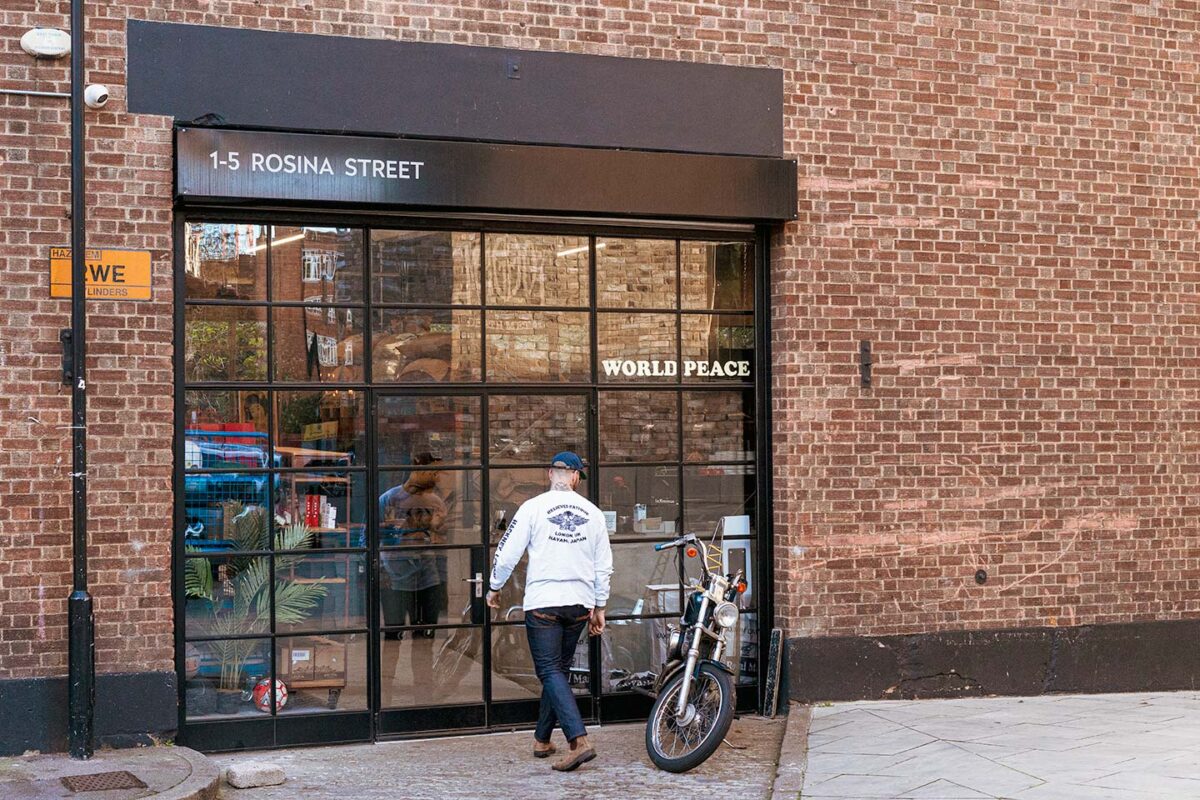
Hackney, East London, has undergone a dramatic transformation in the past 10 years. Once regarded as London’s most deprived boroughs, the immigrant-rich area has seen an increase in small cafes, salons and retailers due to gentrification. As the streetscape has changed, so has people’s perception of Hackney: The district went from a no-go area at night to a place where you can venture out and find fun. But the redevelopment isn’t without its critics, who fear the loss of Hackney’s cultural diversity with an influx of affluent white people.
Dark Arts Coffee Roasters was established in Hackney in 2014. Now renamed Dark Arts Coffee, they operate a roastery out of a renovated steelworks. Throughout the years, their brand concept has remained the same: to stay true to themselves.
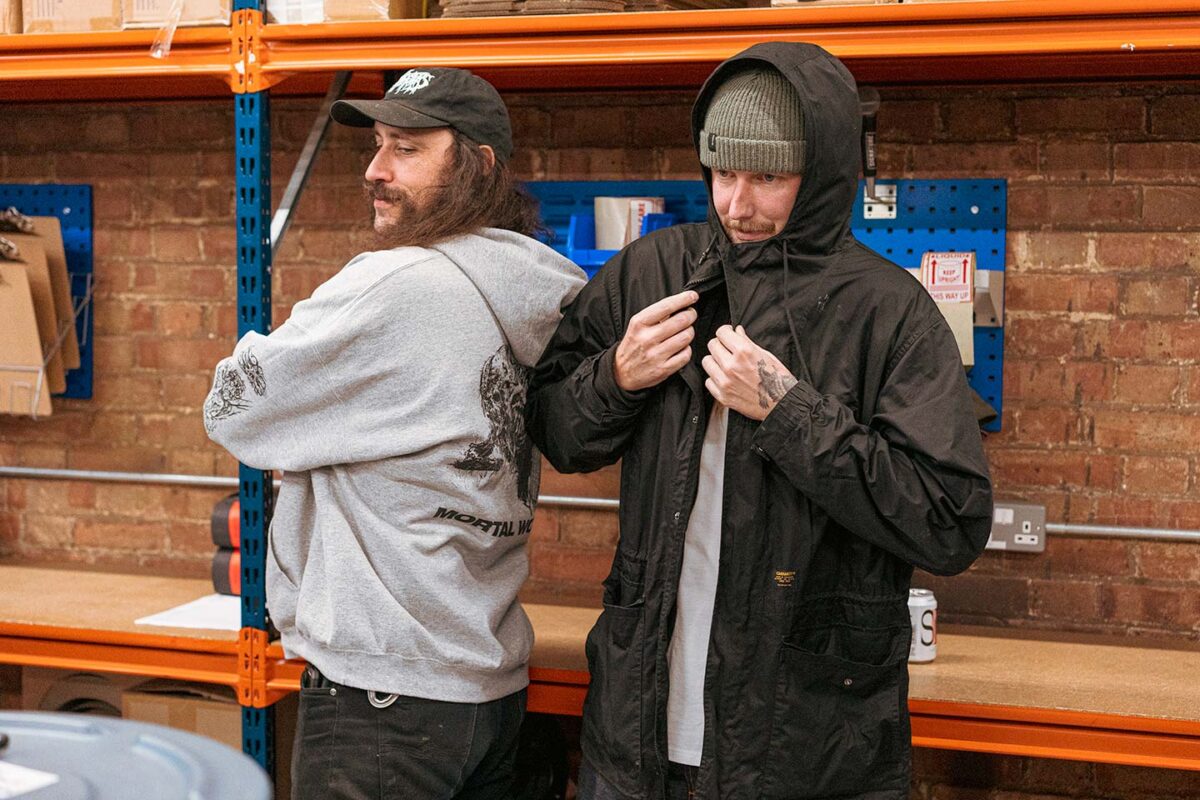
Dark Arts started out as a collaboration between Bradley Morrison and Colin Mitchell. In 2015, the duo got a new member, Jamie Strachan, the self-described “biggest heavy metal lover in the company.” Before his foray into the coffee industry, however, Jamie worked at bookstores and CD shops, offering his recommendations to customers as a sommelier of sorts. Then he made a career change in 2010 when he took up a position as a barista. 12 years on, Jamie is now a green buyer; but no matter the role, he has remained true to himself all these years.
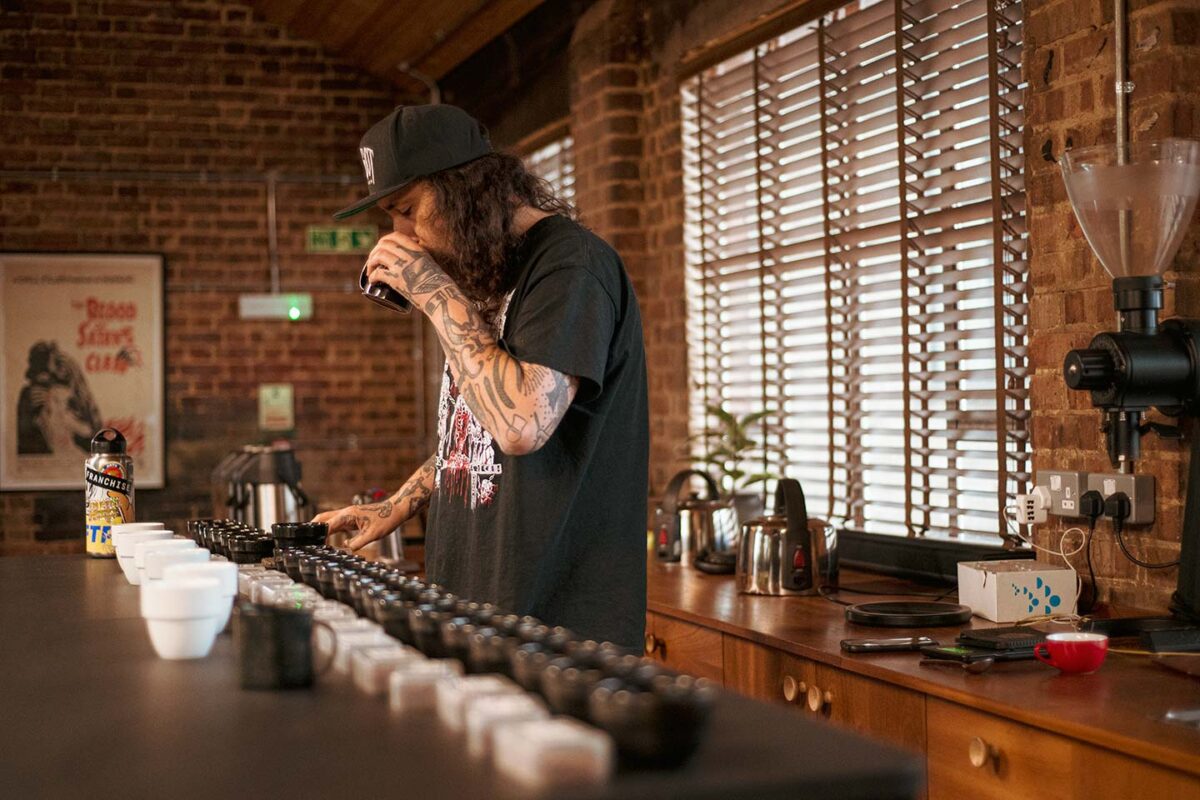
Shining light on ‘neglected origins’
There is a concept called “filter bubble”. When internet users look up something on search engines or browse social media, the data is fed into algorithms, which then personalize the kinds of information they encounter online. As a result, they end up seeing only what they want to see without realizing it.
But this is hardly a new phenomenon. Historically, access to information was often controlled, or sometimes blocked altogether. Since newspapers, television and radio became the mainstream media, the general public had only limited information sources. This brought about various stereotypes where, for instance, Hollywood has become synonymous with action movies and Nordic literature with mystery novels.
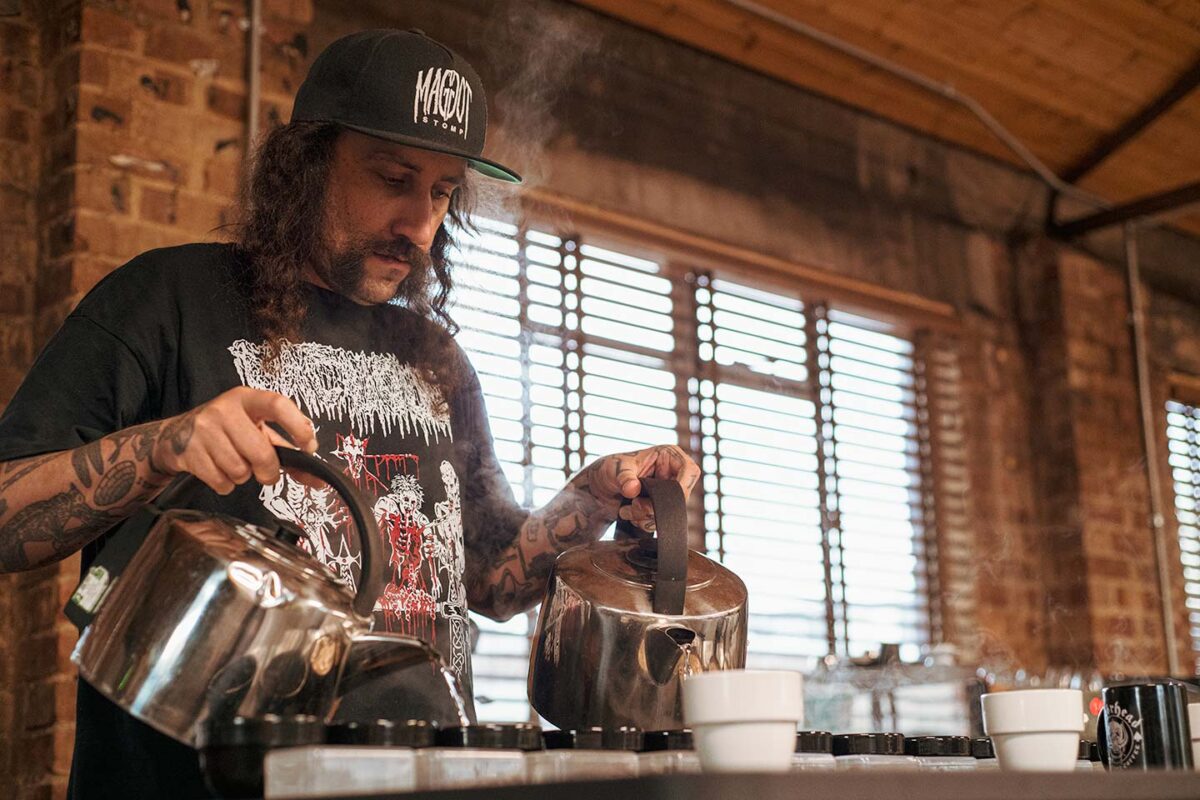
The equivalent in coffee origins would be “Panama, Colombia, and Ethiopia,” says Jamie. “These stereotypes created prejudices and misunderstandings. Some roasters say they don’t buy Mexican coffee, but Mexico is a big country. If you let your prejudice guide your decision, you are essentially giving up a chance to find delicious coffee. We want to prove that there is good coffee in ‘neglected origins,’ not just Mexico but East Timor, Indonesia, Malawi, and Yunnan in China.
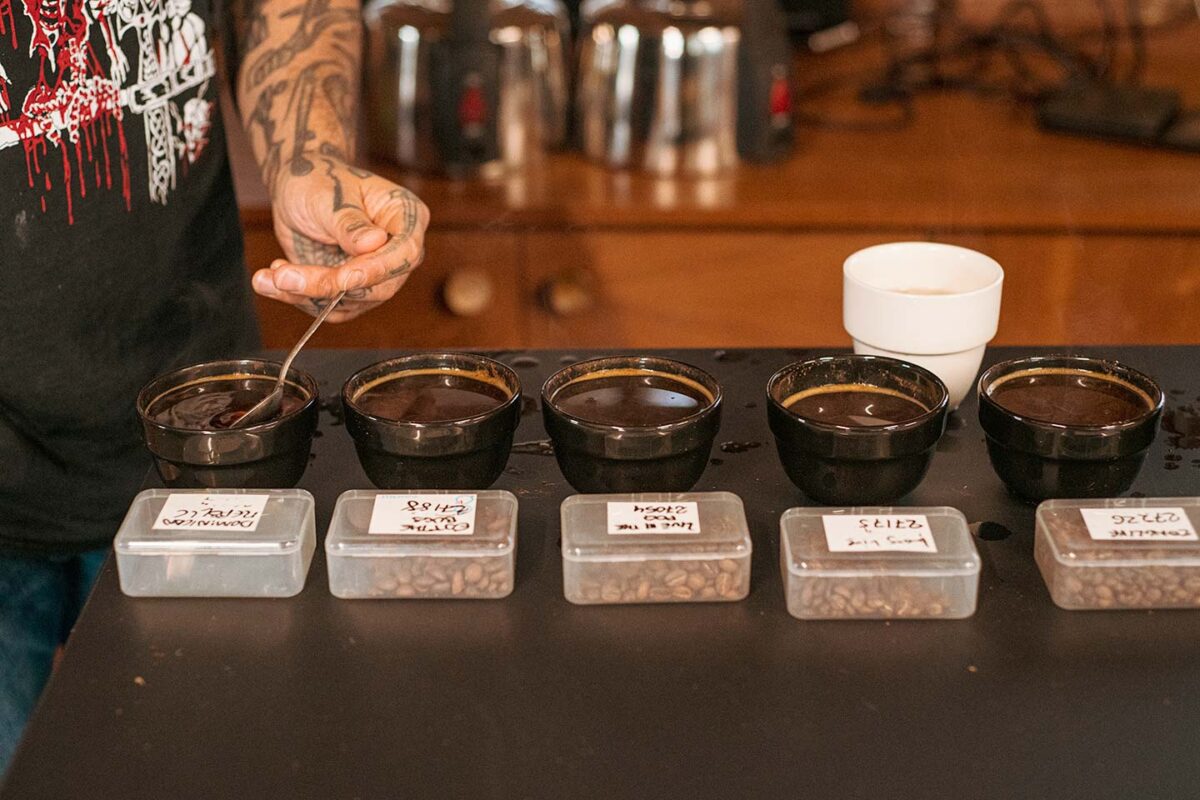
I’m fed up with people focusing too much on SCA scores and talking about how this coffee scores 90 points or that coffee won the Cup of Excellence and sells for 1,000 dollars per pound. But in reality, very few people can afford to buy such an expensive coffee. I mean, it’s cool that the farmers did an amazing job and got rewarded for their hard work. But I don’t think paying 1,000 dollars a pound for one coffee is going to change much at the origin level. Instead, what I think is really important is to buy coffees that score 83, 82, or even 80 in bulk in order to push forward the coffee industry as a whole.
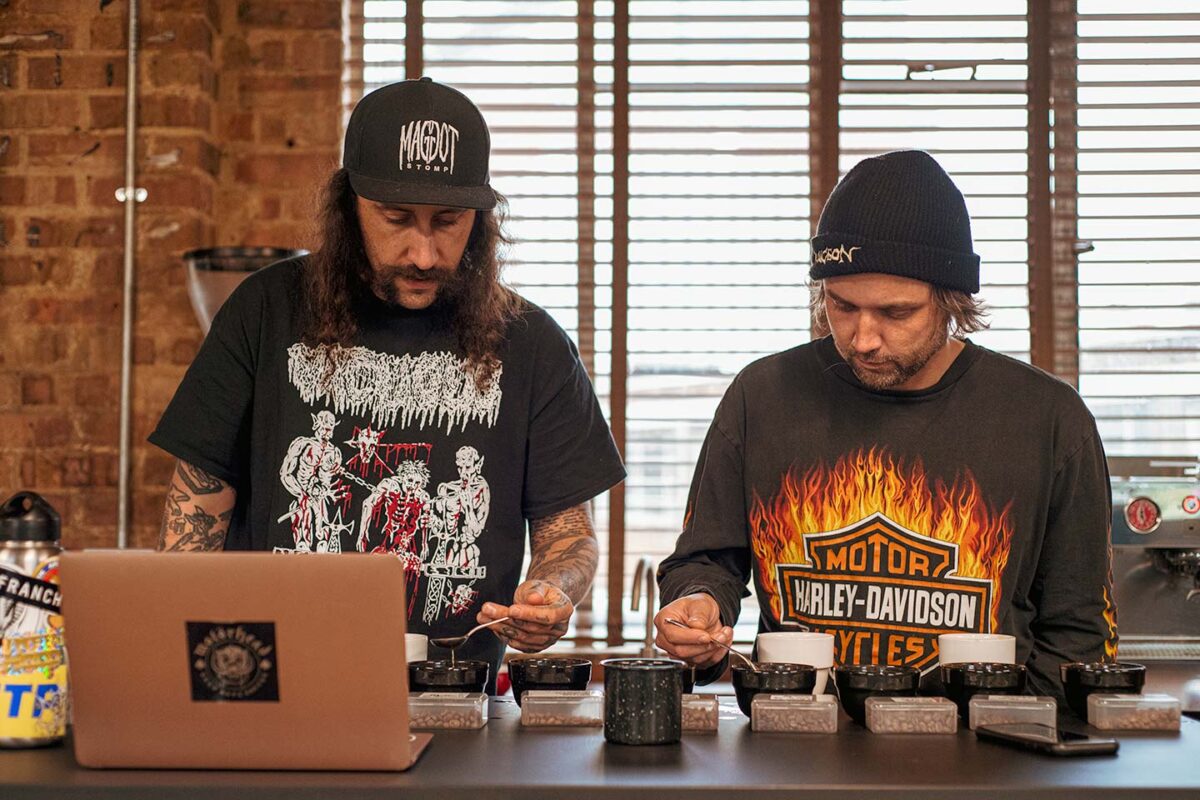
When you look at the current specialty coffee industry, most of the money doesn’t seem to go to coffee origins in the first place. But a little bit of it that does go to coffee origins seems to end up in the same few pockets of famous farms and producers. I understand they deserve it, but so does everyone else. Other producers should also be rewarded for all the work they put into growing coffee because it’s just as hard to produce coffee in those minority countries as in more mainstream ones.
We’ve been buying from producers in Guerrero since 2021. That’s one of the poorest regions in Mexico. And the farmers are under pressure from drug cartels to grow narcotics instead of coffee. So they are taking the risk by producing coffee. So obviously we want to support them.
It’s been eight years since we opened. Now that we’ve grown to 12 staff members and 6,500 kilograms in monthly roasting volume, I think we’ve entered a stage where we can build longer-lasting relationships through direct trade with producers.”

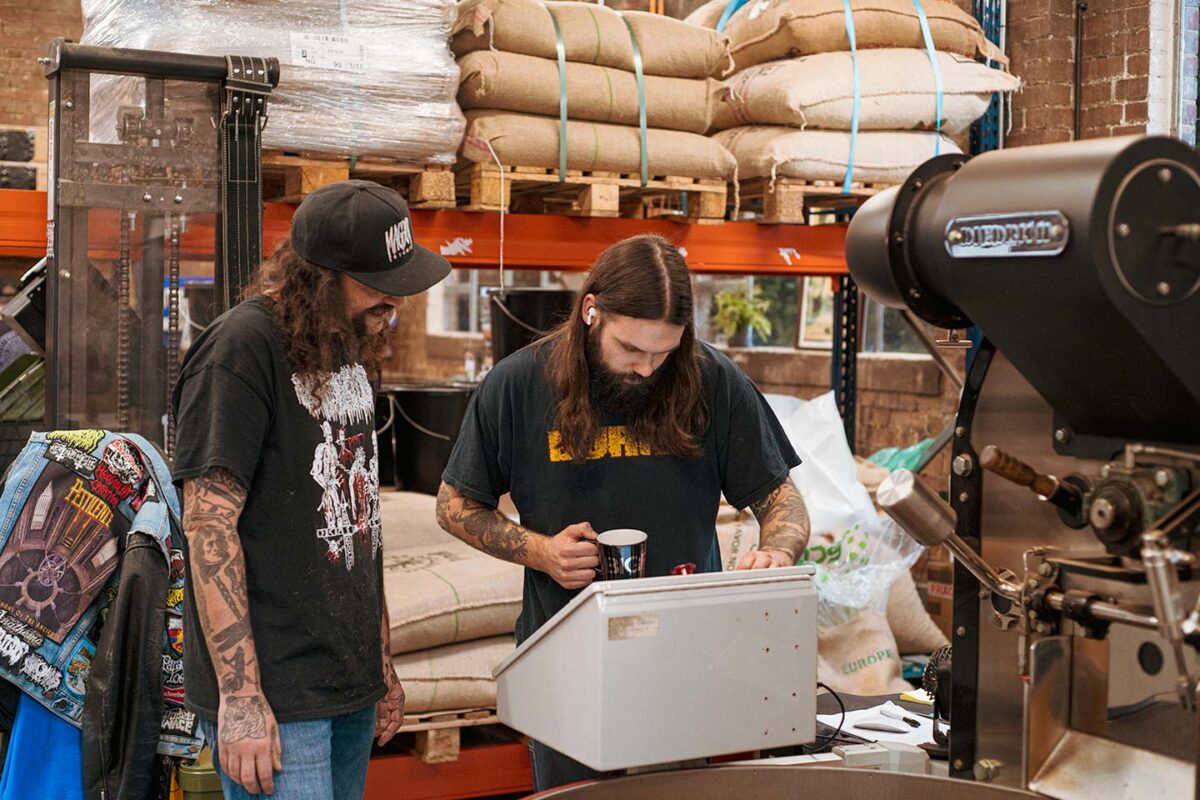
Drawing line between subjective and objective, mindful of ‘elitism’
Strong principles or ideology can sometimes make people tunnel-visioned. But that doesn’t apply to Jamie, who says stereotypes can be beneficial. “Heavy metal fashion is also a type of stereotype. But it can foster a conversation between people with common interests,” says Jamie. Likewise, he isn’t against stereotypes around coffee, either. He actively seeks out overlooked origins, but that’s not because he is on a crusade against the mainstream but simply because it’s fun.
“I get really excited when an importer gives me a sample and it’s from an origin I’ve never tried,” says Jamie, who is in charge of green coffee sourcing at Dark Arts. “One of the joys of working as a buyer for a roaster is that you get to try coffee from all over the world and understand where it comes from and how varied it can be. And it can change your preferences, too.
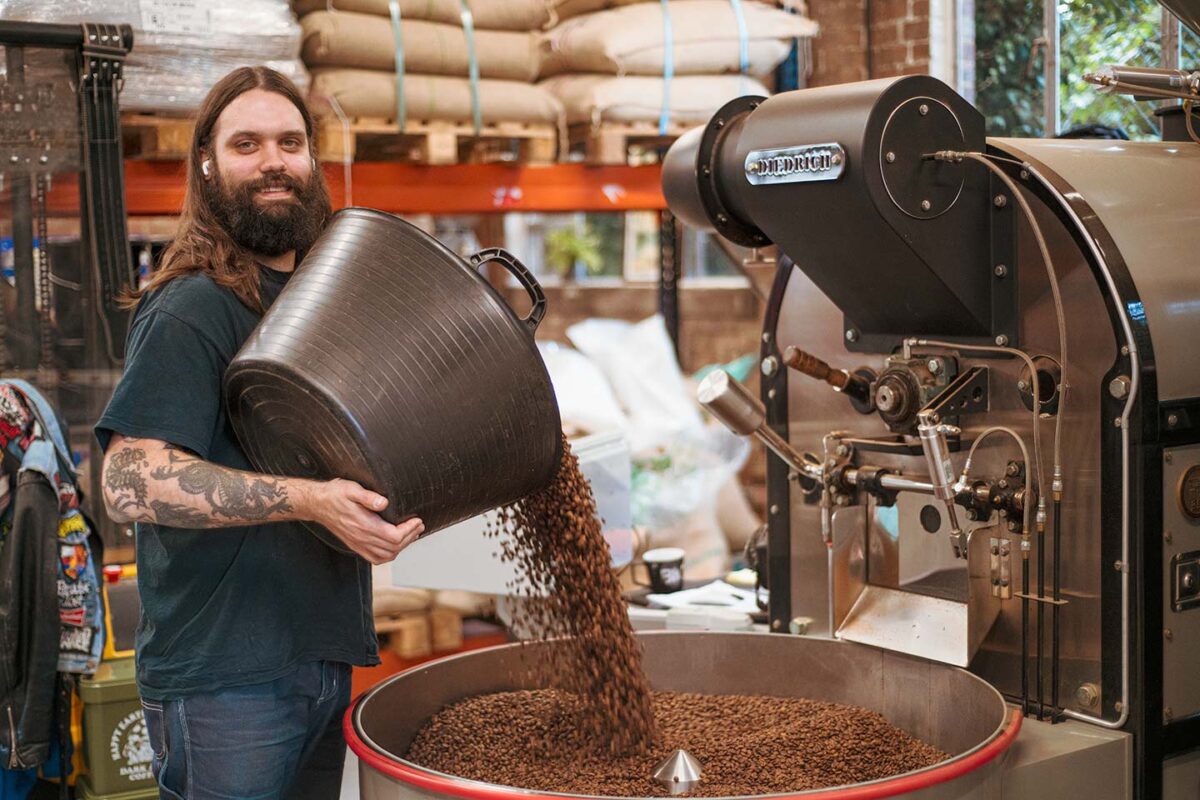
What I found really interesting was when I moved from being a barista to a roaster. My taste for coffee changed almost immediately. That was a surprise. But looking back, the way I look at coffee and think about it has changed in the more than 10 years since I entered this industry. It’s cool that people have their favorites, but I think we should be more open to changes in preferences and enjoy different styles of coffee.”
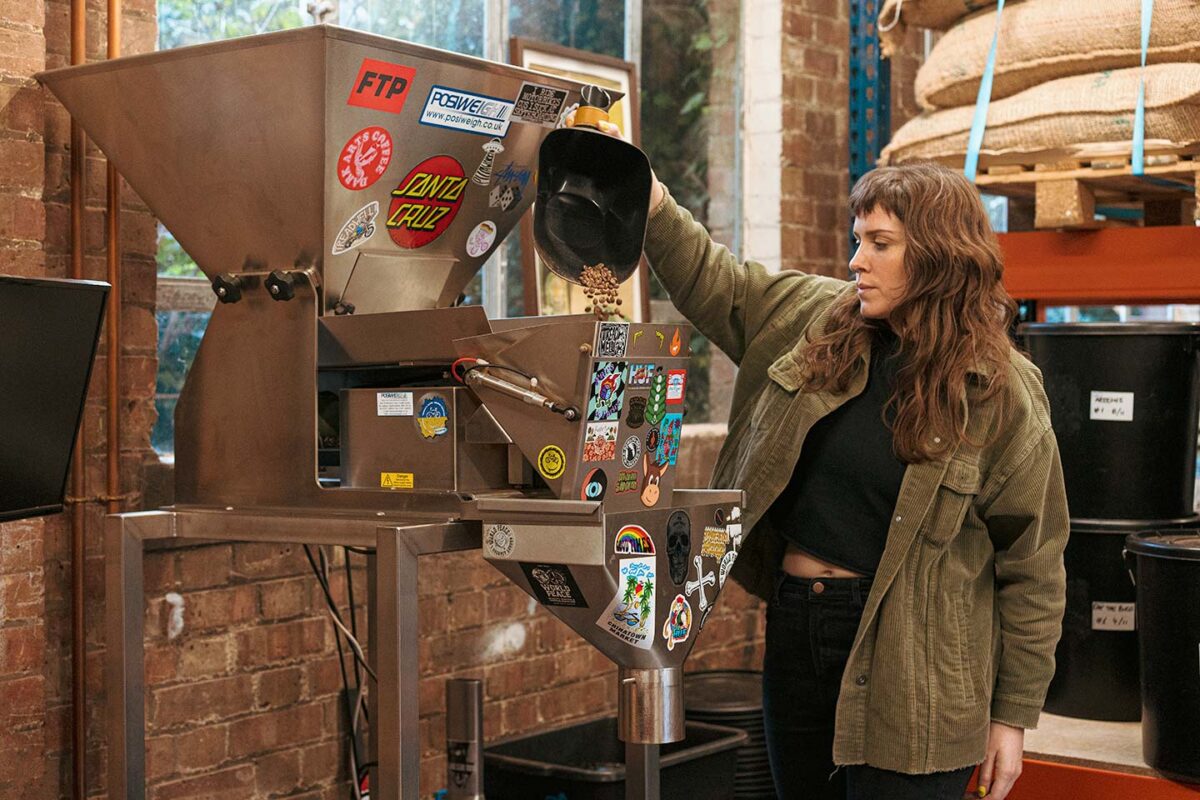
Jamie is careful not to lean too much on his personal taste or to fall into the trap of elitism. In fact, he sources mainstream, trending coffees, too, such as Ethiopian natural and fruity Colombian coffee.
“The coffee industry seems to be rife with elitism bordering on classism. There is this new trend of infusing coffee with cinnamon and fruits during fermentation in order to add flavor. Everyday people are really excited about this because they can finally taste what the flavor notes say.
But there’s been a bit of a backlash from some professionals who see that as a bastardization of the product. They think that’s not authentic, and that coffee’ taste should be more pure and unaffected by anything. I think this is elitism. If people are enjoying the coffee and farmers are making more money, then I don’t see what the problem is.”
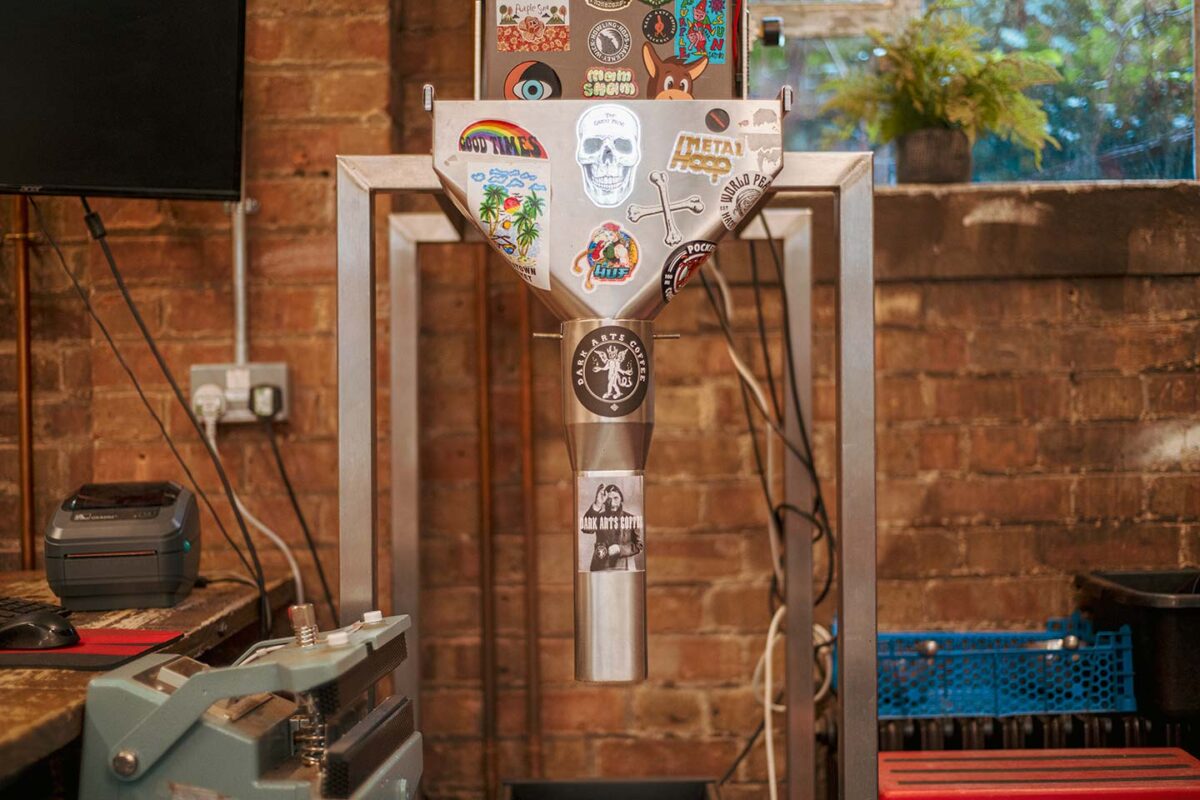
From Dark Arts’ persona, one might see an anti-establishment orientation here and there. But you’d be wrong to assume they are disruptors of peace. Quite the contrary; They are a purveyor of harmony, restoring balance to the imbalance of a seesaw that has tipped too heavily to one side.
Contrary to popular perception, “being anti-establishment and seeking harmony can go hand in hand,” Jamie says. “If anything, it’s quite dangerous if the establishment tries to create harmony because they might try to maintain the status-quo and push a narrative that benefits them only. The same can be true for the coffee industry. If the establishment dictates which coffee origins are worth buying from and which ones are not, you’ll end up with some neglected origins. So if being anti-establishment means buying from those undervalued origins, then it’s the same thing as creating harmony in the industry.”

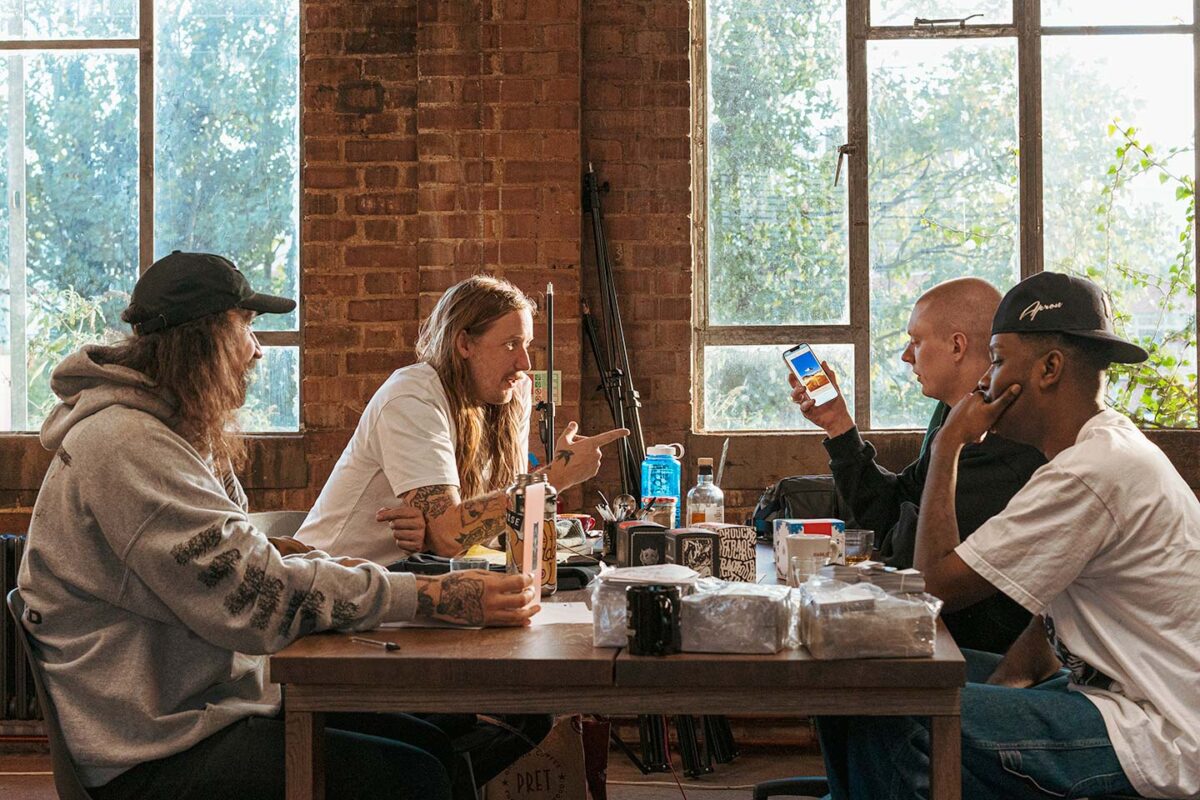
Best hospitality comes from being yourself
“We have never made a business decision sober,” declares a statement on Dark Arts’ website. They have a following of over 40,000 users on Instagram, as well as an avid fan base on YouTube. Their social media messaging stands in stark contrast with the tried-and-tested branding approach of adorning a timeline with sophisticated, beautiful photos and videos.
“When you are at a wedding, you have to speak differently depending on who you are talking to. How you speak to your grandmother, relatives, friends, or coworkers and bosses from work is all different. So you have to understand the different formalities. But then there were some cafes where staff members talked to all their customers in the most formal way, instead of using those different voices. That was something I really didn’t like.”
But the cafe restaurant Jamie started working at after coming to London was just such a place, where the staff spruced themselves up in white shirts and aprons and addressed each other and diners with “sir”. For Jamie, it was almost suffocating. Most of the patrons were celebrities or business people working in the financial district. After a year, Jamie left the restaurant because he didn’t feel at home in a rigid environment that seemed to stifle staff members’ individual personalities.
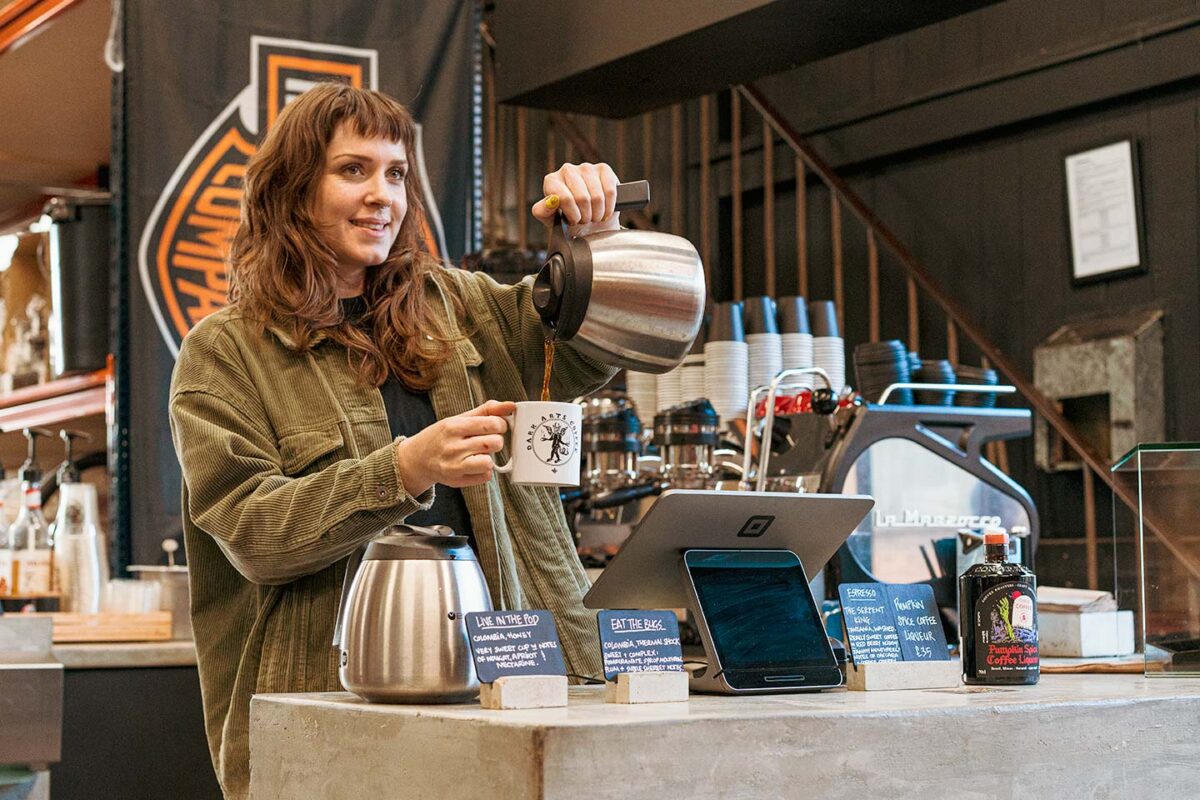
“When I first started working in coffee in 2010, every place was just like that. Whatever cafe you went to, you’d see smart-looking and stylish staff members. Because the first good cafes and roasters did well with that style. So a lot of people jumped on the bandwagon and tried to copy that. Maybe they didn’t have a coffee background or passion but had money, so they wanted to invest in this new industry. But now it’s very different. There are a lot of cafes in London with their own personality. It’s really nice to see.
What’s important for us is humor and creativity. Even when we work, we listen to music we want to listen to, joking with each other. That atmosphere and vibes are infectious, even through social media. I think a lot of people are coming to our shop because we are having fun and being creative.
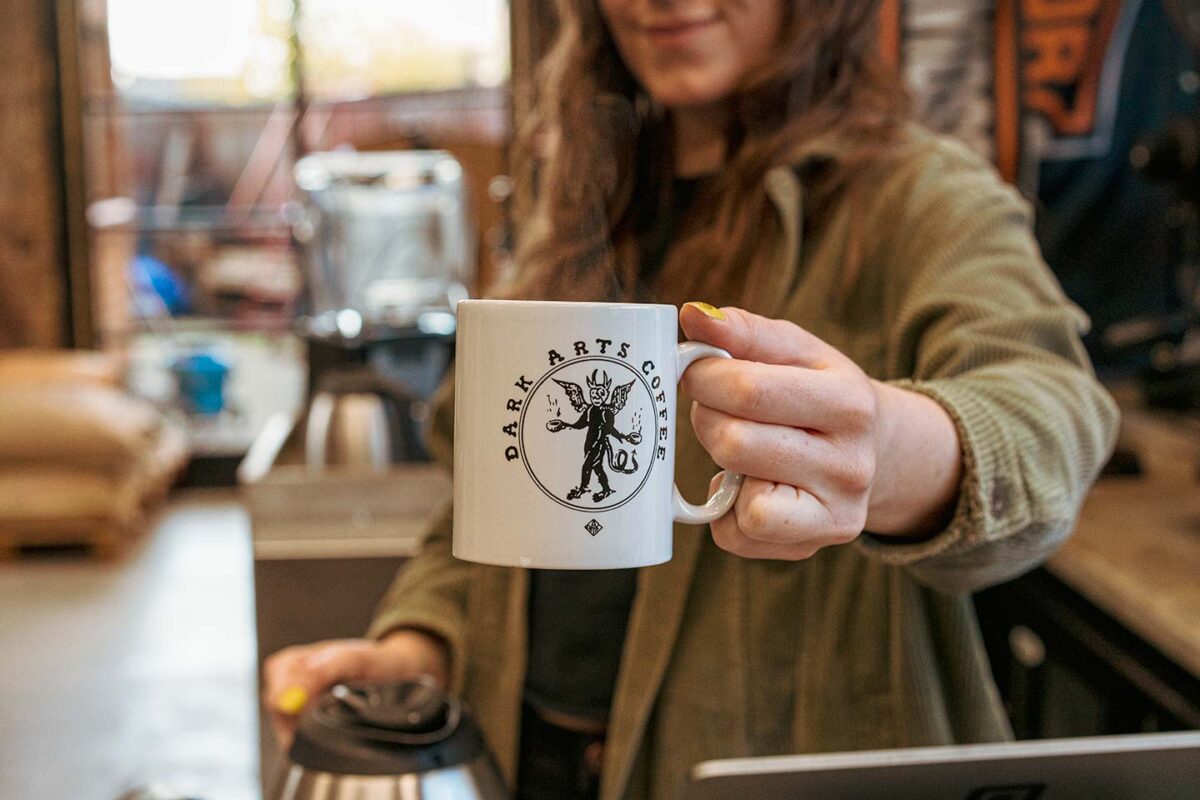
We always try to be ourselves, and that’s what we cherish first and foremost. Even if you try to copy someone or be someone else, you are never going to be better than them. So you may as well be yourself and hope that people enjoy it. No matter how niche your interests are, there is always someone else who has those same values and interests. In fact, online sales skyrocketed during the Covid pandemic, and we sold out 200 mugs in two hours. I think the best service and hospitality comes from being yourself as much as possible.”

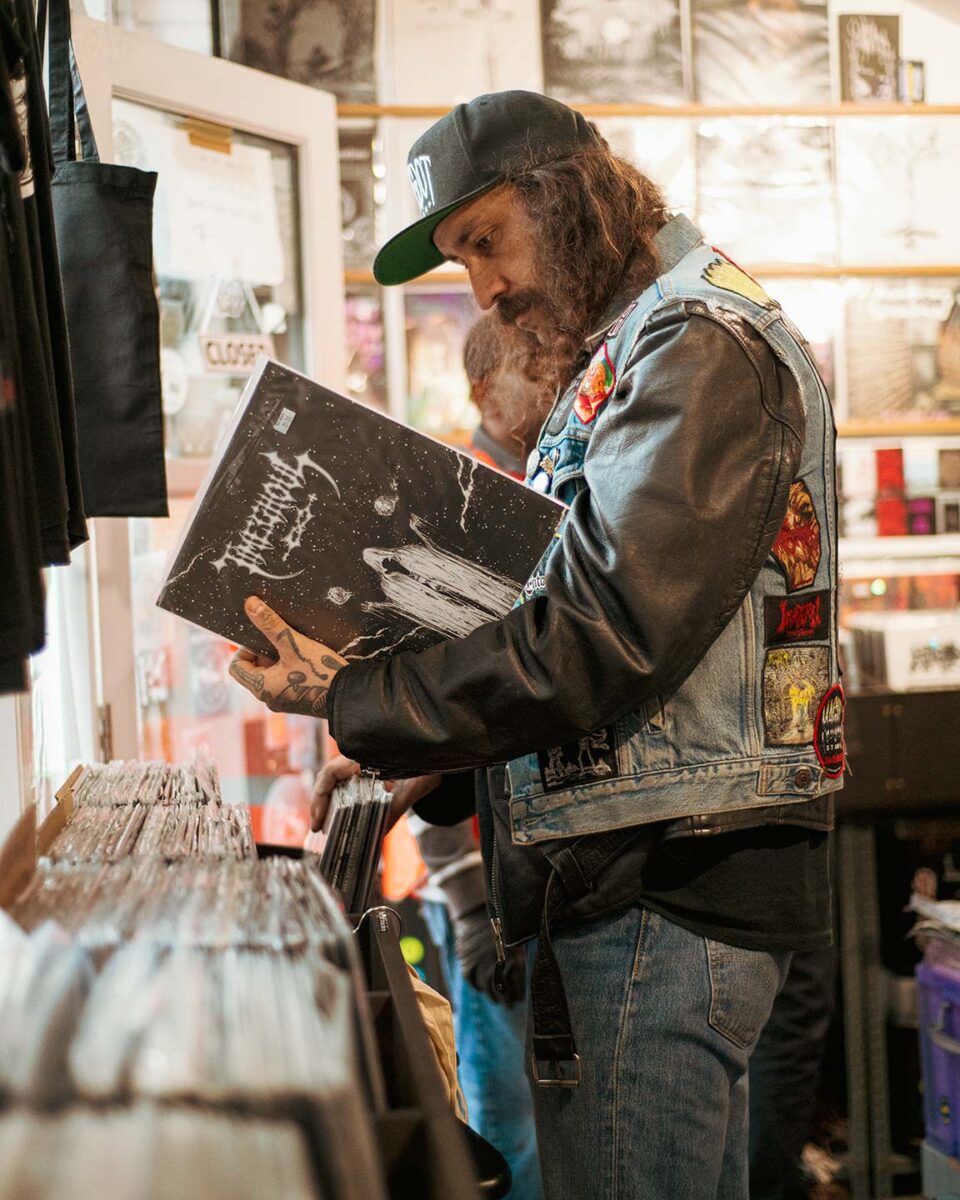
Finding hidden gems
There was a time when Jamie didn’t even know how to brew coffee. Before moving to London, he worked at bookstores and CD shops for 10 years since he was 15 years old. Those jobs were an ideal place to satiate his voracious interest in music, films and literature.
“I used to really enjoy it. Someone would come in and say they didn’t know what they wanted to buy but wanted a new book. Then I would ask them the last book they’d read, what their favorite book was, and find them a book they might like. It was really satisfying when they came back and said, ‘That book was great. What should I get this time?’ I think I was able to do that because I’d read a lot of books and listened to a wide range of music myself.”
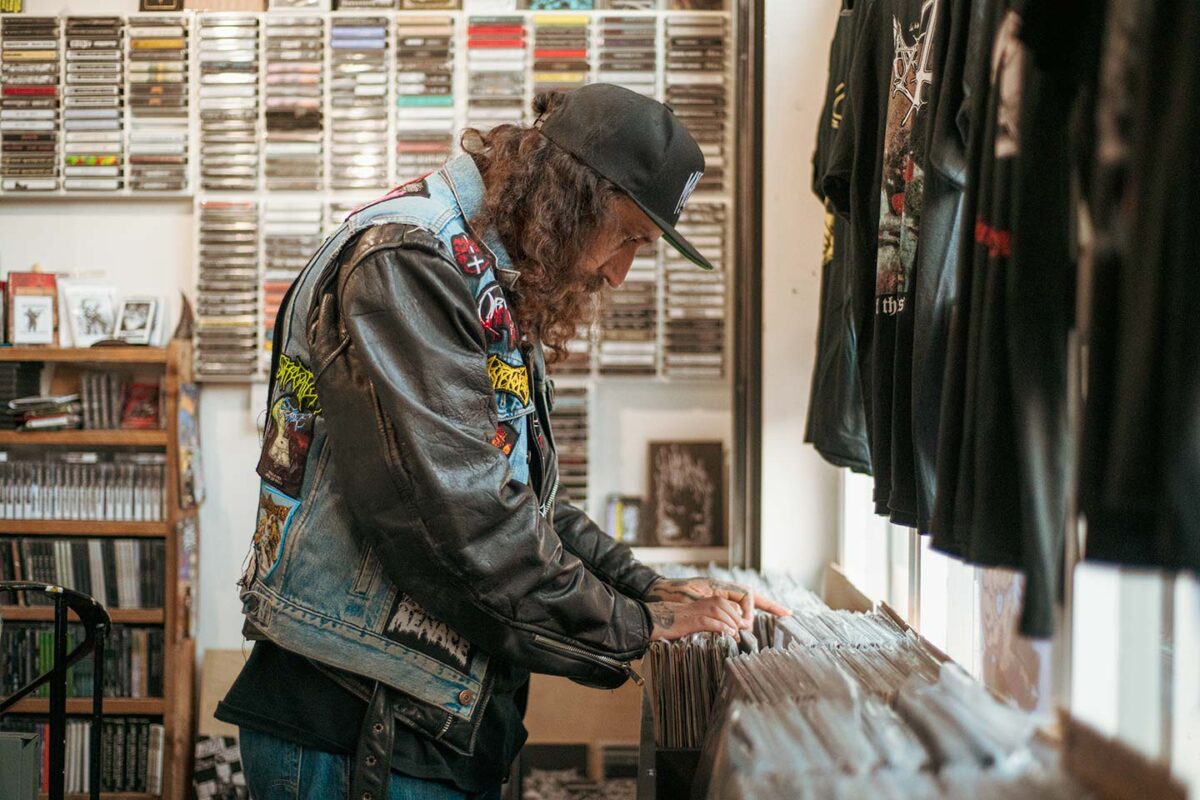
But with the tide of digitization engulfing music, the industry was going through a tectonic shift. And Jamie knew the industry was on the cusp of a new phase of its life cycle. He knew that if more and more people started to opt for streaming sites over physical copies of music, the existing business model would soon become outdated. Eventually, he decided to leave the music industry.
“I do miss those industries because I enjoyed recommending things to people. But I have no regrets. If I’d stayed in music retail, I think I would’ve had to shift my focus and learn how to code or work at Spotify. The reason I’ve been able to work in coffee all these years is partly because it’s a growing industry.”
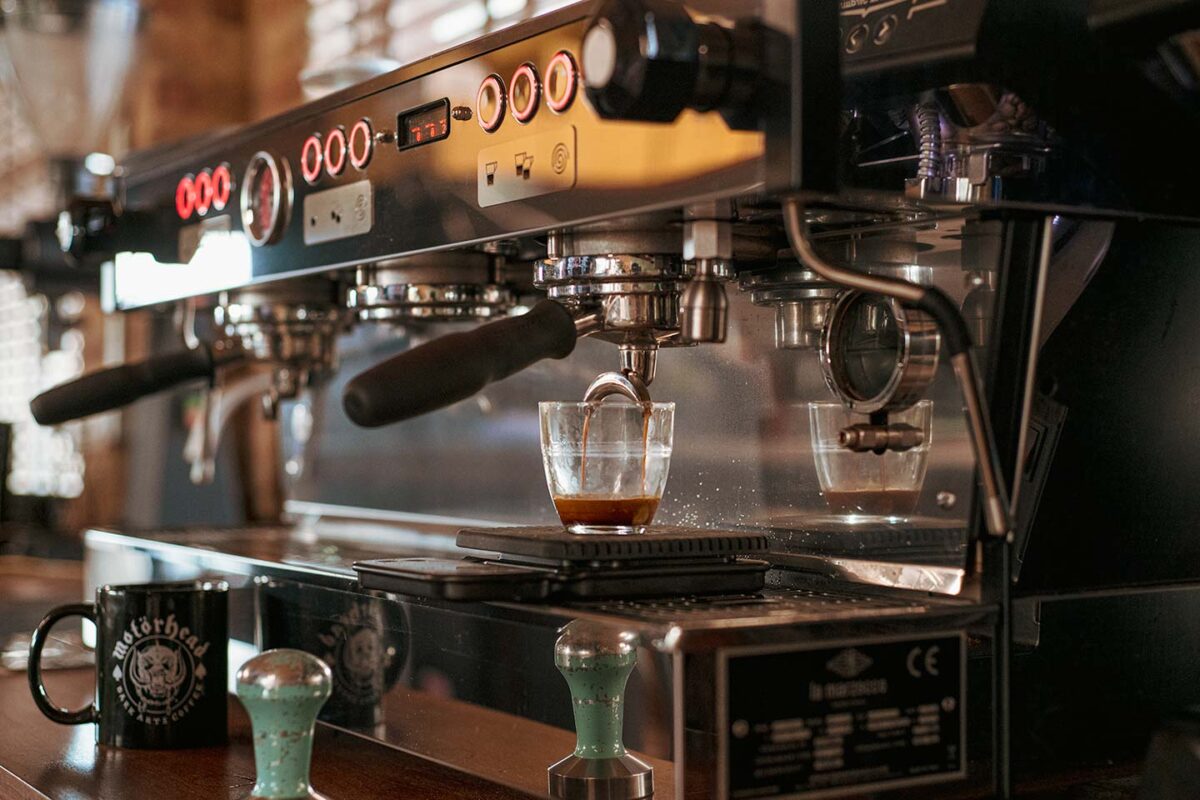
Jamie studied music technology in college. The object of his interest has always been knowing how a song is made, rather than listening to it. This is why Jamie, though an ardent heavy metal fan, also enjoys jazz and pop music just as much.
“I discovered an Indian record label sometime ago. They are releasing extreme heavy metal music by Asian bands from South Korea, India, and Sri Lanka. They are not hugely popular. But as far as I know, heavy metal fans like to find hidden gems like these bands.
I think it’s the same with coffee. It’s always fun to find something new, whether it’s processing methods, varieties, or origins. That’s what keeps coffee interesting for me. And being surprised about something I’ve not tried before and sharing that excitement with someone else is part of the beauty of coffee. So I want our customers to also enjoy a broad range of coffee, too.”
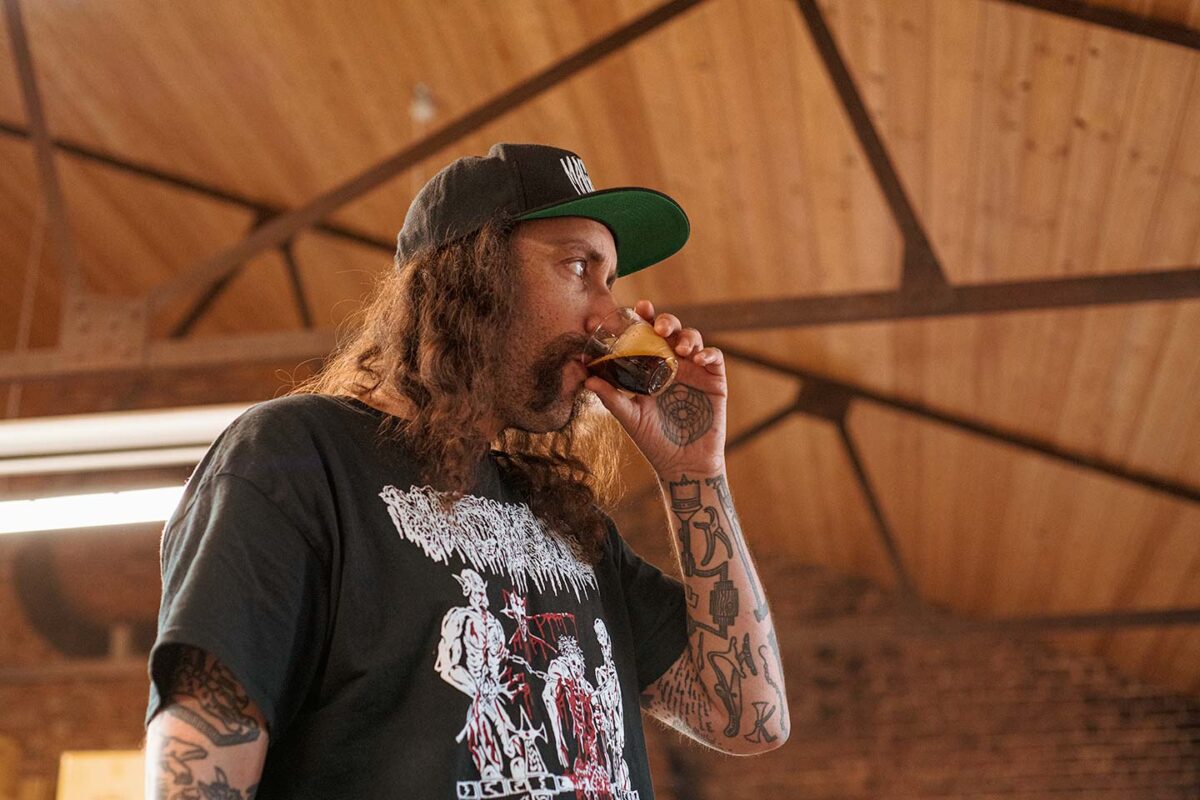
As people grow old and have many experiences, their beliefs and values often get hardened and skewed one way or another. Sometimes, that’s helpful, but sometimes not. We can all learn how to enjoy life from Jamie’s “treasure hunting,” and his open-minded embracing of things around him, free from prejudices and stereotypes.
“I really enjoy watching YouTube videos that show people’s reactions when they listen to an album or a genre they’ve never listened to. I like to feed off of the excitement that someone else gives off when they stumble upon something they’ve never tried before.”
Originally written in Japanese by Tatsuya Nakamichi
Photos by James Wiise
MY FAVORITE COFFEE人生を豊かにする「私の一杯」
This is probably what everyone else says. But my favorite is the first cup of the day I have at home, especially in the summer, out on the balcony, enjoying coffee by myself. I try to drink coffees from various origins other than my favorites, but I like washed Mexican coffees the most, brewed with Kalita.

このロースターのコーヒー豆を購入する
Dark Arts Coffee
- [営業時間]
- Mon-Fri 8:00-17:00 Sat 10:00-15:00